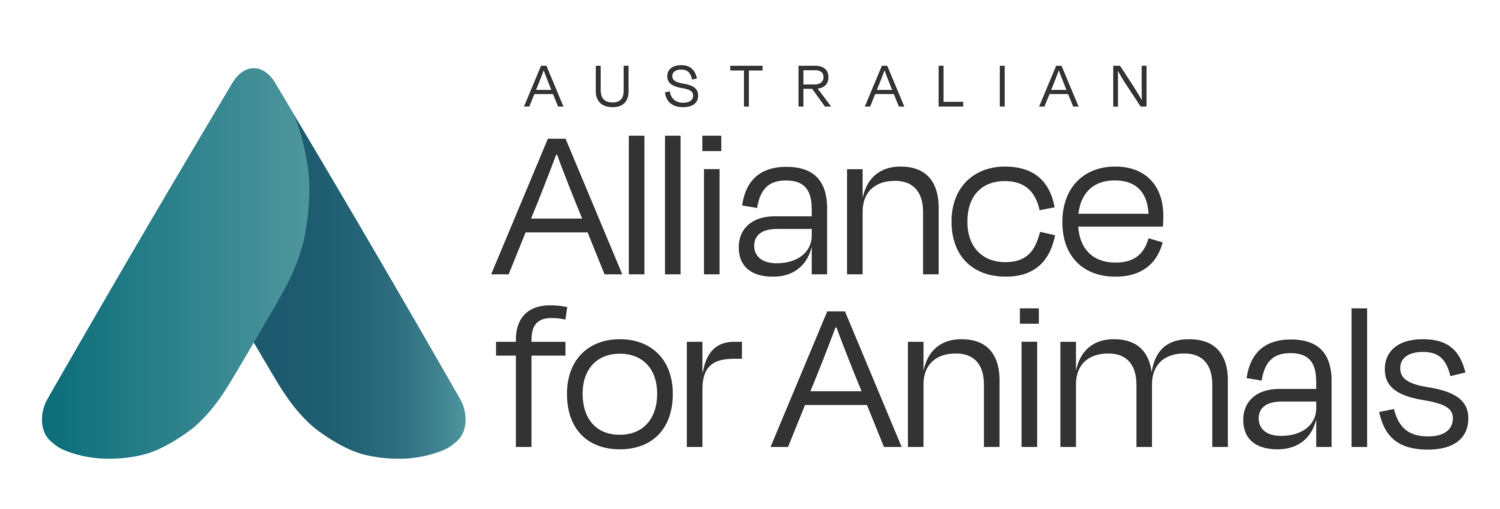New Animal Alliance Seeks Common Ground with Farmers
Australian Alliance for Animals Co-Founder and Director, Policy and Government Relations - Dr Jed Goodfellow.
It's common in debates about animal welfare standards in farming for mud to be slung, especially in the age of social media. Activists accuse farmers of being cruel and uncaring, while farmers fire back with that age-old 'inner city latte-sipper' adage.
I've been guilty of it myself and have been on the receiving end of some choice retorts from 'agvocates' over the years.
It's understandable. Emotions are strong. Stakes are high. Morality, identity, livelihoods are on the line, not to mention the welfare of millions of animals.
The debate means a lot for those involved, on both sides. But what I've come to realise after nearly two decades of advocating for animals is that butting heads just gives everyone a headache. Nothing positive comes of it.
The truth is, our shared frustrations should not be directed at one another, but at the systems - both public and private - that currently place us at cross purposes.
Publicly, governments have dropped the ball when it comes to animal welfare policy. The Federal Government abdicated its leadership role in 2013, defunding the Australian Animal Welfare Strategy. Our national process for standards development has been without direction ever since.
National standards for the welfare of poultry have just entered their seventh year of development. By the time state and territory governments finally approve them, they'll likely be out of date.
State and federal governments invest such meagre funding in the current process that it can only deal with one review at a time, creating a bottleneck that affects other sectors.
The review of national standards for animals at abattoirs, in pig production and land transport have all been delayed by years as a result to the frustration of industry and animal welfare bodies alike.
Not only is this detrimental to industry's ability to plan for the future, but it also presents problems for market access as international trading partners raise concerns about Australia's comparatively low, or absent, standards.
Australia can no longer rely on three-word slogans like 'clean and green' to gloss over deficiencies in animal welfare as trading partners and consumers alike want evidence of good practice.
As recently reported on Farmonline, the European Union is considering restricting imports of Australian meat and wool products unless they meet animal welfare standards equivalent to those practised in Europe.
Similar concerns were raised by British officials in the negotiation of the new Australia-UK Free Trade Agreement. That agreement now has an entire chapter dedicated to animal welfare, obliging the Australian and British Governments to review developments in animal welfare and promote high animal welfare practices.
There's little doubt the Europeans will be seeking similar, if not greater, conditions.
In the private sector, the market remains geared towards rewarding low-cost, high-volume production which fails to provide farmers with the price signals necessary to incentivise higher welfare practices. Unfair bargaining positions with supermarkets compound these pressures.
With these factors at play, the blame for welfare standards falling below community expectations can hardly be sheeted home to farmers alone. Rather, it's the product of both governments and the market failing to allocate sufficient resources to supply the animal welfare outcomes that society demands.
This is what needs to change, and this is why Australia's leading animal welfare organisations have recently come together to form the Australian Alliance for Animals.
With a combined supporter base of over two million people, the Alliance is focused on changing the underlying systems that inhibit progress for animals.
While farmed animal welfare will be a focus area, we're not here to sling mud at farmers. We want to identify and promote solutions that will work for all.
That's why a core component of our policy agenda is to advocate for a national Animal Welfare Improvement Fund, which producers and businesses could access to invest in improving welfare practices.
If animal welfare is a public good that the market can't provide in sufficient quantities, then farmers can hardly be expected to bear the burden of society's collective conscience on their own.
There is a legitimate role for government to ensure this public good is delivered.
Politically, it's a no-brainer. Australians love farmers. They also love animals. So helping farmers help animals is a winning combination.
We know this because we recently asked Roy Morgan Research to look into it for us. Their research found that 82 per cent of Australians supported, or strongly supported, government funding to help famers improve animal welfare standards.
This is just one of many potential areas where we hope advocates and farmers may find common ground.
We figure it will be a lot more productive than butting heads.
First published on Farm Online, 24th March 2022.

